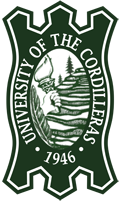Associate in Computer Technology (ACT)
The ACT program provides students with knowledge and skills to support IT professionals and the IT needs of organizations. Students in the ACT program can manage computer systems and maintain computer networks.
Bachelor of Science in Information Technology (BSIT)
- Web Technology Track
- Network and Security Track
- Enterprise Resource Planning Track
Students in the BSIT program acquire knowledge and skills that shall enable them to fulfill the roles played by IT professionals in key industries and the government. Such roles range from application installation to the design, development, and maintenance of computer networks and databases. Students opt for their chosen concentration from among three tracks: Network and Security, Web Technology, and Enterprise Resource Planning.
Bachelor of Science in Computer Science (BSCS)
The BSCS program provides its students with a rigorous grasp of the theoretical and applied aspects of computing, especially in three essential research fields: Machine Learning, Data Science, and Digital Arts and Animation. As a research-oriented program, students are equipped with adequate skills in applying theories, methodologies, and techniques in the development of multifaceted software systems and advancing new knowledge in the field of computing.
Bachelor of Science in Data Analytics (BSDA)
The BSDA program equips its students with expertise and knowledge to support innovation, planning, and management of information infrastructure. The expertise and knowledge are crucial in the ability of IT professionals to direct and control information resources within diverse organizational settings.
Bachelor of Library and Information Science (BLIS)
The Bachelor of Library and Information Science (BLIS) is a degree program that is designed to equip students with the knowledge and industry-defined skills required for managing digital, electronic, print, and non-print information resources; communicating and collaborating with library stakeholders; and developing a passion for life-long learning. Career opportunities upon graduation include professional librarianship, research, publishing, consultancy, and providing other information-related services to clients.
Bachelor of Multimedia Arts
Graduate Programs
Master of Science in Computer Science (MSCS)
The MIT program enables its students to undertake fundamental industrial practices, namely, systems planning, systems development, systems integration, systems implementation, and systems administration. Students opt for one concentration from among three tracks: Professional Science Master’s Track Enterprise Solutions Track, and Web Solutions Track.
- Artificial Intelligence Track. The artificial intelligence track guides researchers on the study of systems that can make decisions or performing tasks based on stimuli from the environment.
- Data Science Track. The data science track directs researchers on the use of mathematics, algorithms, computer systems, domain expertise, and scientific methods to extract significant intuitions from data for decision making.
Master in Information Technology (MIT)
The MIT program enables its students to undertake fundamental industrial practices, namely, systems planning, systems development, systems integration, systems implementation, and systems administration. Students opt for one concentration from among three tracks: Professional Science Master’s Track Enterprise Solutions Track, and Web Solutions Track.
- Professional Science Master’s (PSM) Track. The PSM track was designed in collaboration with Texas Instruments Philippines, Inc. (TIPI) through the Science, Technology, Research, and Innovation for Development (STRIDE) Program of the United States Agency for International Development (USAID). This track develops professionals that excel in information and communication technology while simultaneously cultivating highly valued business skills.
- Enterprise Solutions Track. The enterprise solutions track aims to enable professional that can lead the design, development, configuration, deployment, and maintenance of enterprise resource planning (ERP) systems. These professionals use ERP systems to improve the efficiency of organizations by managing the business processes while satisfying the needs of the different functional areas.
- Web Solutions Track. The web solutions track empowers IT professionals in the design, development, deployment, and maintenance of distributed systems. Students in this track are exposed to works on databases, servers, systems engineering, and client interactions to prepare them to become full-stack developers.
Doctor in Information Technology (DIT)
This graduate program equips its students with proficiency and mastery that enables them to embark on IT projects and conduct researches that are geared toward addressing relevant social issues. IT projects, research, and publications on project management theories and practices, systems architecture, big data, cybersecurity, and IT trends are expected from graduate students in this program.

